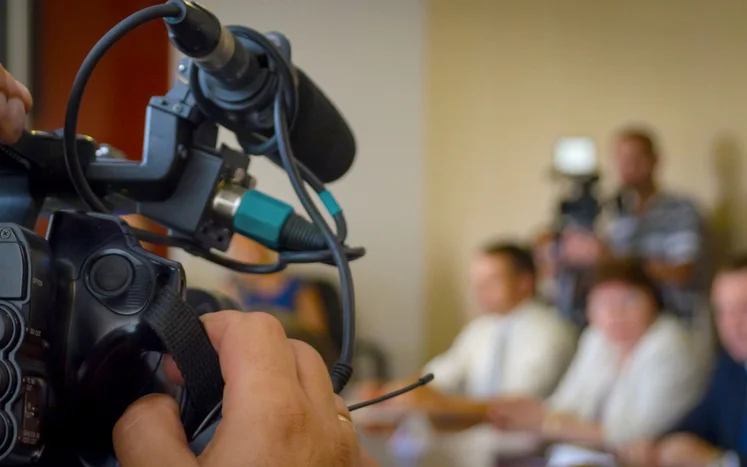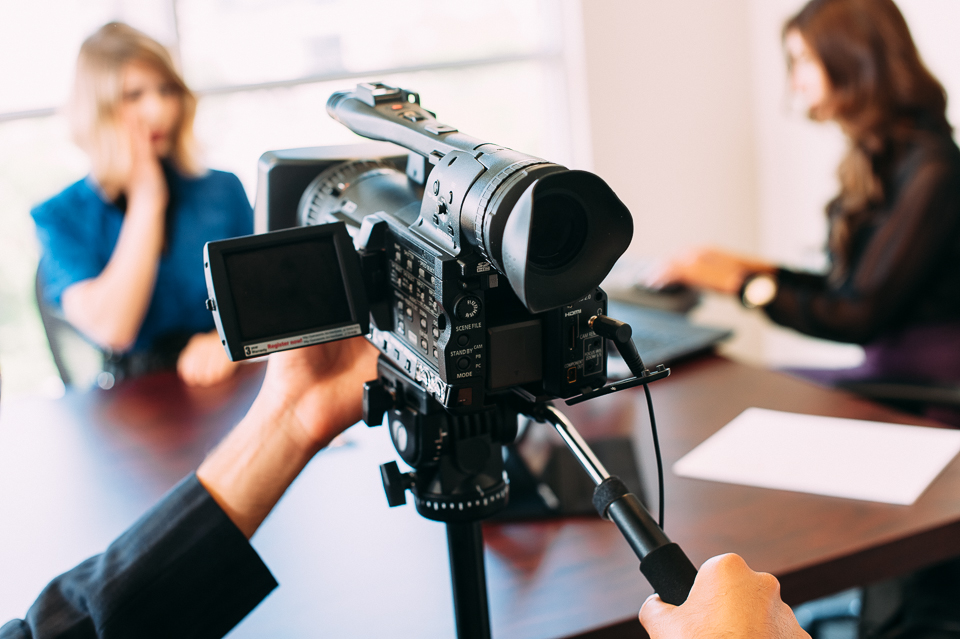Leading Advantages of Using Legal Videography for Depositions and Tests
The integration of legal videography into depositions and tests presents a range of compelling advantages that can considerably affect the effectiveness of legal procedures. By catching witness statements in a dynamic format, legal videography not just boosts the discussion of proof however likewise boosts witness reputation via the conservation of both spoken and non-verbal hints.
Improved Evidence Presentation


In the world of legal procedures, the use of video recordings has actually transformed the means evidence exists in court. Lawful videography offers a vibrant and appealing medium for showcasing essential evidence, making intricate information a lot more accessible to judges, courts, and other stakeholders. Unlike standard written records, video recordings record not just the spoken words, however additionally the nuances of body language, tone, and attitude, which can considerably affect the interpretation of statements and declarations.
Moreover, video evidence enables an extra compelling narrative presentation. Through visual storytelling, attorneys can successfully highlight vital facets of a case, guiding the audience's attention to turning points. This boosted discussion can promote a much deeper understanding of the context and effects of the proof being discussed.
Additionally, the capacity to existing proof in a multimedia format can simplify the test procedure, lowering the moment required to share details compared to extensive spoken descriptions or checking out from transcripts. In general, legal videography plays a critical role in enhancing proof discussion, making sure that the info is both impactful and comprehensible, ultimately aiding in the search of justice.

Improved Witness Credibility
Making use of legal videography dramatically improves the reliability of witnesses throughout trial process. By supplying a visual depiction of a witness's testimony, lawful videography allows jurors and courts to perceive the witness's attitude, confidence, and credibility. This multi-dimensional discussion can substantially influence exactly how the information is gotten, usually resulting in an extra positive perception of the witness.
Additionally, the recorded video clip captures non-verbal hints, such as body language and faces, which can be crucial in sharing reliability or emotional deepness. A witness who appears made up and honest is a lot more likely to be regarded as legitimate than one who is simply heard via sound. Lawful videography additionally eliminates the possibility for misconception that can accompany written transcripts, as the visual layout supplies context that supports the talked word.
In addition, the durability of video clip evidence reinforces the witness's account, making it extra hard for opposing parties to test the statement's dependability. By incorporating lawful videography into depositions and trials, attorneys can significantly strengthen the perceived stability of their witnesses, eventually boosting the overall effectiveness of their situation.
Accurate Deposition Records
Exactly how can exact deposition records impact the result of a case? Exact deposition documents play a critical function in legal procedures, acting as important evidence that reflects the trustworthiness and dependability of witness testaments (legal videography). These records give a verbatim account of declarations made during depositions, making sure that all subtleties, inflections, and contexts are preserved. This accuracy is vital when establishing the realities of an instance, as it enables attorneys to reference exact expressions or assertions made by witnesses, reducing the threat of false impression.
Furthermore, lawful videography enhances the precision of deposition documents by catching the visual and acoustic elements of the testament. This includes body movement, tone of voice, and facial expressions, which can give extra context to the talked words. Such detailed records make it possible for attorneys to craft even more engaging arguments, as they can conveniently confirm cases with straight evidence.
In addition, precise deposition records can simplify the test process, minimizing disputes over what was claimed and permitting a much more efficient presentation of proof. Ultimately, the mix of written records and video clip recordings cultivates a more clear understanding of witness statements, substantially affecting the case's outcome.
Psychological Effect On Jurors
Jurors commonly discover themselves affected by the emotional weight of the testaments they witness throughout a test. The visual and acoustic elements of legal videography boost this emotional vibration, allowing jurors to regard the nuances of witness expressions, tone, and body movement. These elements play a critical function find more fit jurors' perceptions of reliability and integrity.
When jurors see a witness recounting a distressing experience, the emotional gravity recorded on video typically elicits compassion and engagement. This can be specifically impactful in situations where the human aspect is main, such as personal injury or family regulation issues. The ability to attach with a witness's feelings fosters a deeper understanding of the case, making jurors most likely to connect to the narrative existing.
In addition, video statements can convey a sense of credibility that may be lost in written transcripts or audio recordings. Jurors are not only soaking up details; they are additionally experiencing try this site the story, which can substantially influence their deliberations. In this way, lawful videography works as an effective tool to evoke feelings, inevitably assisting jurors toward a more enlightened and thoughtful judgment.
Economical Litigation Device
Lawful videography not only enhances the psychological effect of witness statements but additionally works as an economical litigation tool. By giving an aesthetic record of depositions and testaments, lawful videography can considerably reduce the prices related to conventional trial prep work and presentation.
First, it reduces the demand for substantial witness travel and holiday accommodations. Instead of bringing several witnesses to court, their tape-recorded depositions can be played throughout the trial. legal videography. This not just saves money on traveling expenses yet also enables a more structured presentation, as lawyers can concentrate on the most relevant testimonies
Furthermore, legal videography can limit the quantity of time invested in trial. By successfully offering witness accounts and proof, attorneys can accelerate process, which translates to lower attorney charges and reduced courtroom expenses. Moreover, the quality and authenticity of video recordings commonly lead to quicker court choices, possibly reducing the trial period.
In an age where budgets are progressively looked at, making use of lawful videography can deliver significant savings while improving the overall top quality of an instance presentation. Its dual benefits of cost-effectiveness and improved interaction make it an invaluable tool in contemporary litigation.
Verdict
In recap, legal videography substantially improves the performance of depositions and tests. Its capability to present evidence comprehensively, improve witness trustworthiness, and supply precise records contributes to an extra clear lawful process. The emotional vibration of video clip recordings engages jurors, fostering a much deeper link to the situation narrative. The economical nature of legal videography simplifies visit our website lawsuits, ultimately sustaining the quest of justice in an extra effective manner.